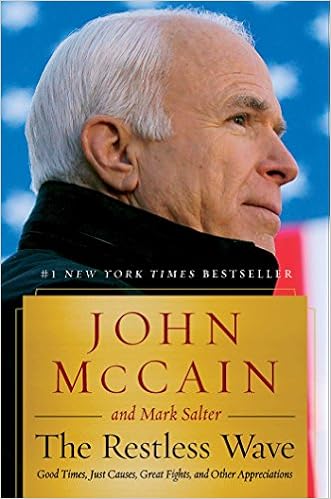I've just finished Michael V. Hayden's The Assault on Intelligence: American National Security in an Age of Lies (2018) Penguin Press, New York, NY
https://www.amazon.com/Assault-Intelligence-American-National-Security/dp/0525558586
For those of you who may not remember, Hayden was a four-star USAF general and the director of the National Security Agency (Initially under Bill Clinton and then George W Bush 1999 - 2005) and then the director of the Central Intelligence Agency (under George W Bush 2006 - 2009)
https://en.wikipedia.org/wiki/Michael_Hayden_(general)
IMHO Hayden presents a balanced view of the challenges currently confronting the US intelligence community and how the situation came to be. His balance can be seen in that he pulls no punches in detailing the failings that came about during the Obama administration. Those who look at the controversies which surround his tenure in those jobs will see that he definitely leans to the right.
The thrust of his book, however, details the fact that the US is currently under cyber attack from Russia through a massive effort to destabilize American democracy and that the current administration is doing nothing about it.
Hayden details that there is a convergence of the way Americans gravitate (intentionally and by way of search engines tuned to reinforce an individual's preconceptions) to information, regardless as to whether it is true or not, that is mutually reinforced by a swirl of Russian-influenced social media, alt-right websites and talk radio, Presidential tweets, Russian press like RT and some US mainstream media like Fox News. While there is no overarching plan and each of these entities work towards their own purposes, the sum total is a dovetailing of these elements that further Russian intents to fracture US society and keep the US focused on it's internal problems rather than fulfilling it's role as the world's leader.
What is even more troubling to Hayden is that the current US administration is deliberately not treating this issue with any of the seriousness it deserves. He firmly places the blame on Trump who is deliberately avoiding mounting a concerted response to what is currently, in Hayden's eyes, the greatest security threat facing the US. He considers this situation to be an appalling national security lapse that while not necessarily leading to social collapse, threatens America's core democratic structures, processes and attitudes.
He believes the country's intelligence community is under tremendous stress from Trump who, having been given overwhelming intelligence that Russia is engaged in a cyber war with the US, not only refuses to lead a strong response to those attacks but instead is acting aggressively in undermining the intelligence community that provided him the evidence.
A good and compelling read for all.
:cheers:




